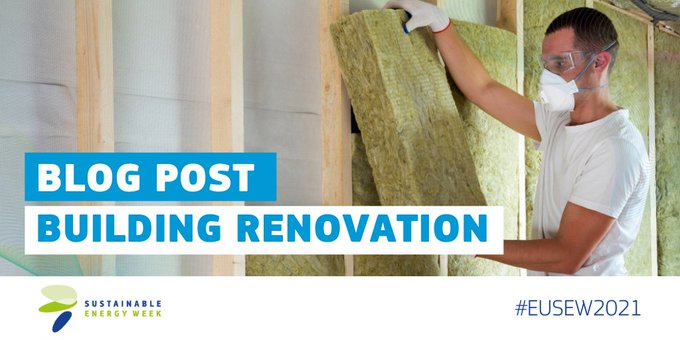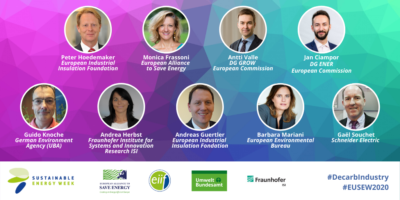A three-step recipe to transform our buildings | EUSEW 2021

by Bertrand Deprez, Vice-President EU Government Affairs at Schneider Electric and board member of the European Alliance to Save Energy, & Céline Carré, Head of European Public Affairs at Saint-Gobain, a member of the European Alliance to Save Energy.
This is no secret: with more than 38% of Europe’s greenhouse gas emissions, buildings represent one of the largest bulk of decarbonisation. And with 40% of energy consumption, they can even lead the energy efficiency race. However, so far, the efforts deployed at the European and national levels to accelerate the renovation of the buildings stock have not been sufficient to drive their long-term decarbonisation. If we want this to change, and to make highly efficient buildings in a fully decarbonised and connected energy system a reality, three levers should be activated simultaneously.
First, aligning hearts and minds around the unique contribution of buildings can happen via the joint revision of the Energy Performance of Buildings Directive, Energy Efficiency Directive and Renewable Energy Directive. The Renovation Wave strategy has set the direction, but specific milestones and acceleration points now need to take shape. Among those are minimum energy performance standards (MEPS) on existing buildings, a tool to drive demand for renovation. Such MEPS should be deployed for first movers segments, such as non-residential and worst-performing residential buildings particularly affected by soaring energy prices. Then, new and existing buildings should be made fit for our 2050 carbon neutrality goals. In this journey, better accounting for reflecting emissions reduction potentials from new buildings and major renovations, on top of energy savings, will also help coordinate and align actions, especially when it comes to boosting the uptake of both energy efficiency measures and renewables, such as directly electrified solutions powered by renewables.
Second, unleashing new business models to finance and roll out renovations will ensure that the ambition is fulfilled. Deploying renovation and recovery is a combined challenge of preparedness and speed. The construction sector is getting ready with new approaches enabling to renovate faster and better. We need more innovators and integrators to plug these new business models together with available finance. The implementation of the post Covid-19 national recovery plans is a unique opportunity to fill the gap in this field.

